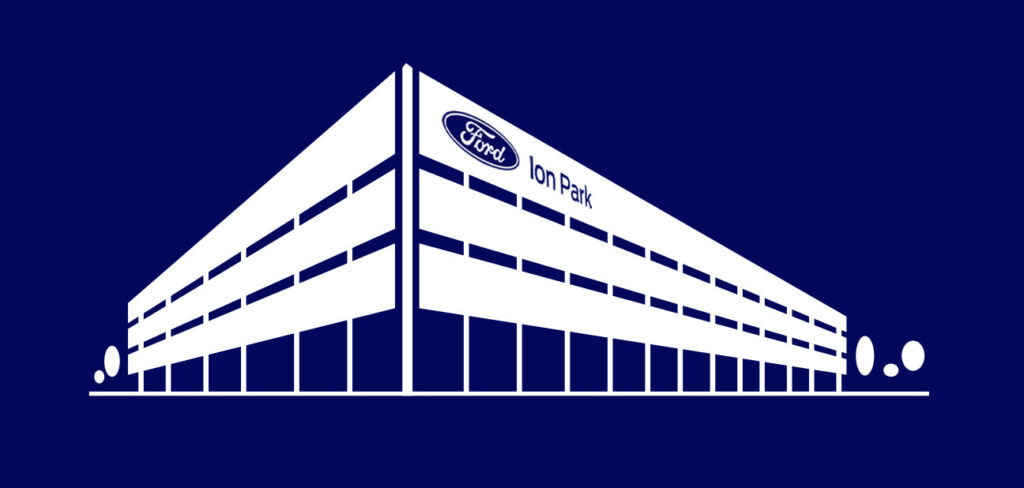Auto maker Ford’s plant in Romulus, Michigan, is to become the home of its new global battery center of excellence, dubbed Ford Ion Park, with which it hopes to accelerate the company’s research and development of battery and battery cell technology – including future battery manufacturing.
“Ford already is delivering on our plan to lead the electric revolution with strong new vehicles including Mustang Mach-E, 2022 E-Transit available late 2021 and the 2022 F-150 Lightning available from spring next year,” said Anand Sankaran, Ford Ion Park director. “The new lab will help Ford speed up the battery development process to deliver even more capable, affordable batteries and is part of Ford’s renewed commitment to making Michigan a centerpiece of its focus on EVs.”
The collaborative learning lab, due to open next year, represents US$100m of Ford’s US$185m investment pledged to the development, testing and building of vehicle battery cells and cell arrays. It is part of the company’s wider US$30bn investment in electrification by 2025.
In 2010, Ford committed to making Michigan its center of excellence for electric vehicles and chose the lab’s Romulus location with collaboration and expedited tech sharing in mind. The company has committed to assemble its new, all-electric Ford F-150 Lightning, with foreign and domestics parts, at the Rouge Electric Vehicle Center in Dearborn, Michigan.
The company also repositioned its half-century-old Van Dyke Transmission Plant in May – renaming it the Van Dyke Electric Powertrain Center and expanding its production line to produce electric motors and electric transaxles for hybrid and fully electric vehicles.
Ford will refurbish an existing 270,000ft2 facility to house up to 200 engineers and include pilot-scale equipment for electrode, cell and array design and manufacturing engineering and innovation.


